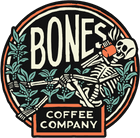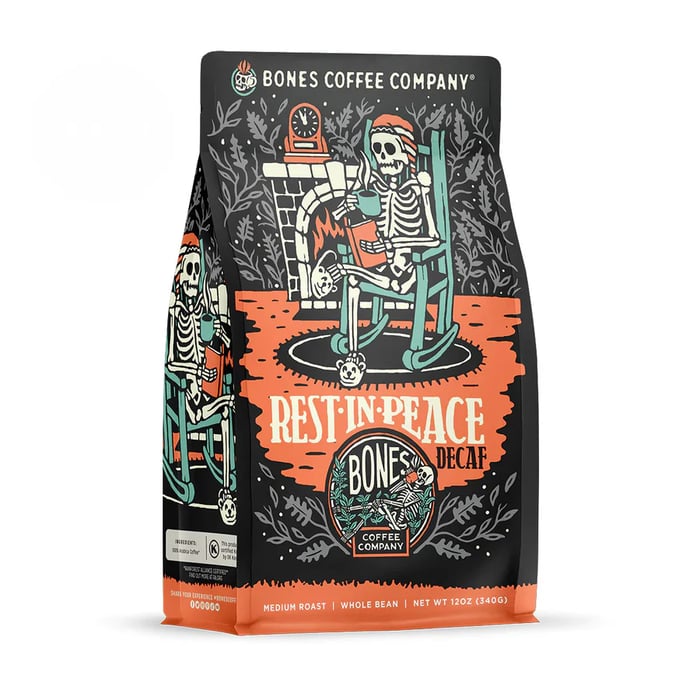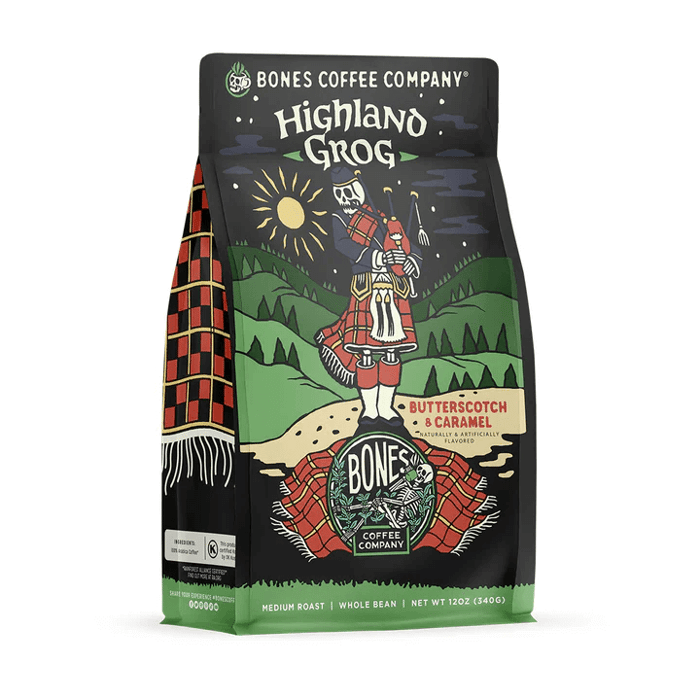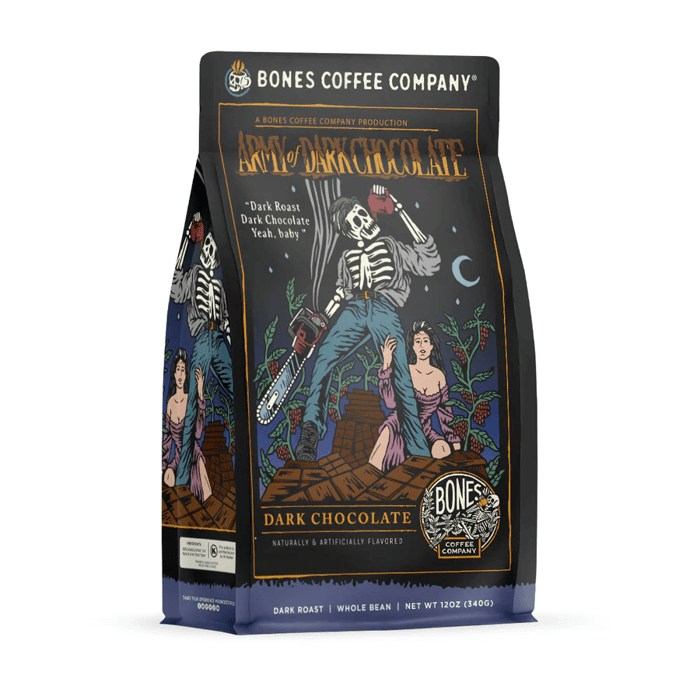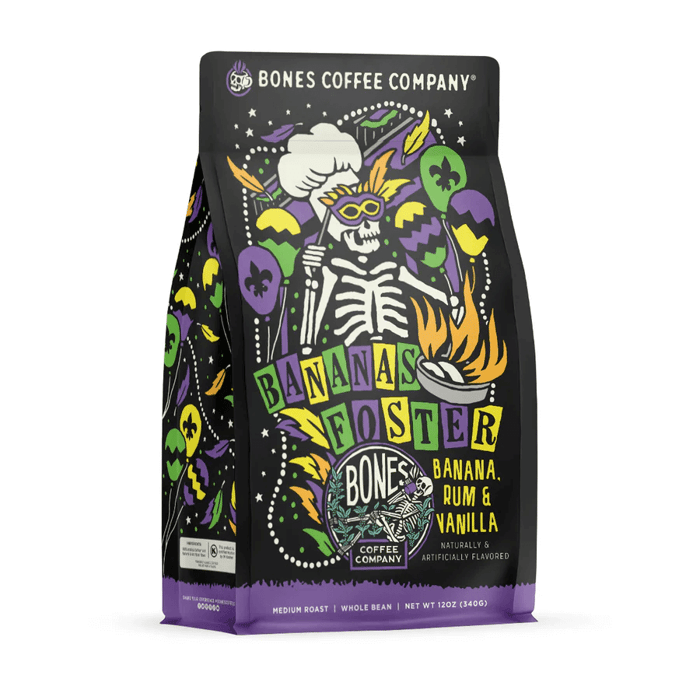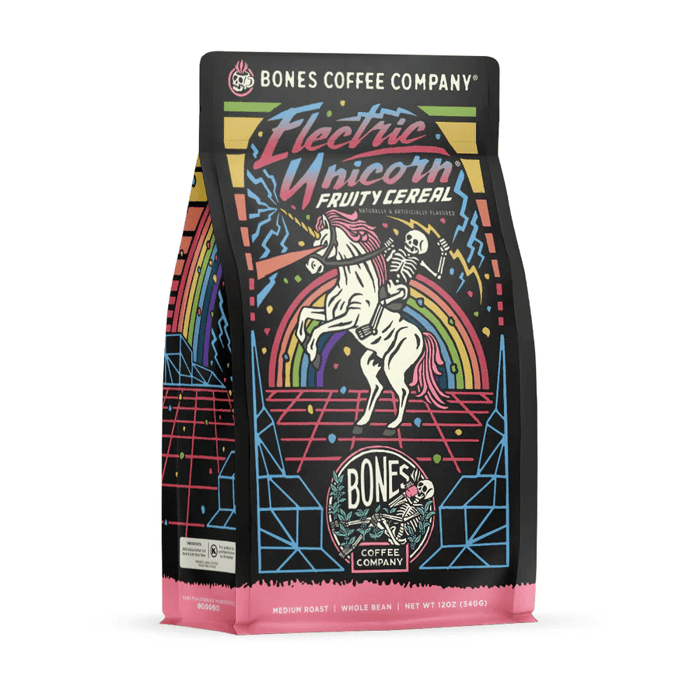For many of us, a morning cup of coffee is a non-negotiable part of our daily routine. The rich aroma, the comforting warmth, and that welcome energy boost make coffee one of the world's most beloved beverages. But if you've ever felt your heart race a bit after that second cup, you might wonder: Does coffee actually raise blood pressure?
In this guide, we'll separate fact from fiction about coffee and blood pressure. Whether you're a casual coffee drinker or a dedicated enthusiast who measures your mornings in cups, understanding this relationship can help you make bold, informed choices about your coffee consumption.
Science Behind Caffeine Intake and Blood Pressure
Yes, coffee typically raises blood pressure temporarily, but regular coffee consumption doesn't necessarily cause chronic hypertension for most people. This seemingly contradictory relationship is due to coffee's complex composition and how our bodies adapt to it over time.
Individual responses vary significantly based on age, caffeine tolerance level, existing blood pressure status, and genetics. This explains why some people can enjoy multiple cups of coffee with minimal effects, while others might experience significant blood pressure changes after just one cup.
Different preparation methods can also influence these effects. For example, different brewing techniques like the French press can extract different concentrations of caffeine and other bioactive compounds, leading to varying cardiovascular responses. We'll dive deeper into each of these factors throughout this article.
Other Compounds Matter: Coffee contains hundreds of bioactive compounds with varying effects on the body, such as polyphenols that can potentially help relax blood vessels and counterbalance caffeine's temporary constricting action. All Bones Coffee Company products are Rainforest Alliance™ Certified, meaning they're sourced using sustainable farming practices that preserve both quality and beneficial compounds. |
Effects of Caffeine Consumption on Blood Pressure
Coffee's relationship with blood pressure is complex and multifaceted, involving both immediate physiological responses and long-term adaptations. Understanding this relationship can help you make informed decisions about how to enjoy your cup of coffee while supporting your cardiovascular health.
Immediate Effects
Drinking coffee does more than just tantalize your taste buds with flavors. It kicks off a cascade of physiological responses throughout your body. When caffeine enters your bloodstream, it triggers several mechanisms that can temporarily affect your cardiovascular system, including a short-term spike in blood pressure levels for many coffee drinkers:
- Rapid Response Time: Your body begins responding to caffeine as soon as 30 minutes after that first delicious sip. People who have a higher risk of high blood pressure are more likely to reach hypertensive levels within 45 to 60 minutes.
- Measurable Pressure Changes: For most healthy adults, a standard cup of coffee temporarily increases both diastolic and systolic blood pressure by approximately 6 mm Hg and 8 mm Hg, respectively. This means your normal 120/80 blood pressure reading might jump to 128/86 shortly after you drink coffee.
- Short-Lived Effect: This blood pressure elevation typically subsides within 1-4 hours as your body metabolizes and eliminates the caffeine, which is why researchers don't generally consider moderate coffee consumption a significant risk factor for developing long-term hypertension in most healthy individuals.
Long-term Effects
The relationship between your daily cup of coffee and long-term blood pressure health is more nuanced than you might expect. While that initial spike in blood pressure after your morning brew is real, regular coffee consumption doesn't translate to chronic hypertension for most people:
- Adaptive Response: Your body develops a remarkable tolerance to caffeine over time. Regular coffee drinkers typically experience diminished blood pressure responses as their cardiovascular system adapts to consistent consumption, meaning your daily Bones Coffee Company ritual likely isn't contributing to sustained high blood pressure.
- Protective Compounds: Moderate coffee consumption (1-3 cups daily) might actually offer cardiovascular benefits thanks to bioactive compounds like chlorogenic acids. These compounds may help reduce blood pressure readings and cholesterol and triglyceride levels, potentially counterbalancing caffeine's temporary constricting effects.
- Individual Variation: Your personal response when you drink caffeine depends on specific biological factors. For example, people with hypertension or certain cardiovascular diseases may experience heightened sensitivity to caffeine's effects on blood pressure. Other factors include age, gender, and genetics.
Habitual vs. Occasional Coffee Drinkers: Your coffee-drinking pattern matters significantly. Occasional coffee drinkers tend to experience more pronounced blood pressure spikes than regular consumers. This difference highlights how our bodies adapt to consistent caffeine intake over time. |
Coffee Types and How They Affect Blood Pressure Response
Not all coffee is created equal when it comes to its effects on your blood pressure. Various factors, from roast level to brewing method, can significantly influence how your cardiovascular system responds to your morning cup.
Caffeinated vs. Decaffeinated Options
Regular coffee typically contains 80-100mg of caffeine per 8-oz cup, which can cause that temporary spike in blood pressure. Decaffeinated coffee still contains about 2-4mg of caffeine per cup, but it may not be enough to significantly impact blood pressure for most people.
If you're particularly sensitive to caffeine's effects on your blood pressure but still crave that coffee experience, decaf options might be your perfect middle ground. Bones Coffee Company has the perfect decaffeinated options for you:
Light vs. Dark Roasts
The roasting process doesn't just affect flavor. It changes coffee's chemical composition.
Light roast coffees generally contain more chlorogenic acid, an antioxidant that may actually help regulate blood pressure over time. They also typically have slightly higher caffeine content compared to dark roasts, which could mean a more pronounced immediate effect on blood pressure.
Dark roast coffees undergo longer roasting times that break down some compounds, including a portion of the caffeine. Dark roasts may have less impact on blood pressure despite their bolder flavor profile.
The extended roasting process creates specific beneficial compounds, including N-methylpyridinium (a potent antioxidant formed during roasting) and melanoidins (brown pigments with anti-inflammatory properties). These compounds have been linked to improved endothelial function and may help counteract some of caffeine's blood pressure-raising properties by promoting blood vessel relaxation and reducing inflammation in the cardiovascular system.
Natural Flavoring Process vs. Excessive Additives
What you add to your coffee can dramatically change its effects on your blood pressure:
- Dairy and Non-Dairy Creamers: Add calories and potentially unhealthy fats that might compound cardiovascular effects.
- Sugar and Flavored Syrups: Can elevate blood pressure independently through increased caloric intake and blood sugar spikes.
- Specialty Drinks: Coffee combined with significant amounts of sugar, syrups, and whipped cream may impose a greater burden on your cardiovascular system than the coffee itself.
At Bones Coffee Company, our flavored, caffeinated coffee options deliver exceptional taste without the need for excessive additives. The natural flavoring process we use infuses the coffee beans with delicious notes without compromising their health profile. Here are just some of our exciting flavors:
Various Brewing Methods
The way you prepare your coffee significantly affects its caffeine content and other compounds that influence blood pressure:
- Cold Brew: Typically has a lower acidity and smoother profile that some find gentler on their system, though the caffeine content can actually be higher due to the longer brewing time.
- Drip Coffee: Paper filters remove many of these oils, potentially making it a better choice for those monitoring blood pressure.
- French Press and Espresso Methods: Extract more oils and compounds from the beans, resulting in higher concentrations of caffeine and substances called diterpenes that may temporarily raise cholesterol and blood pressure.
Pay Attention to Your Body’s Signals: If you experience persistent headaches, heart palpitations, or unusual dizziness shortly after coffee drinking, these could be indicators that caffeine is affecting your blood pressure significantly. These symptoms shouldn't be ignored, especially if they occur regularly or increase in severity over time. |
Enjoy Caffeinated Beverages Without Compromising Health
While caffeine may cause short-term increases in blood pressure, moderate consumption of caffeinated beverages is generally safe for most people. Coffee lovers don’t need to give up their daily brew to prioritize heart health.
Whether you're cutting back on caffeine or simply exploring new flavors, Bones Coffee Company offers something for every taste—classics, decaf options, creative infusions, and more. Explore our extensive coffee collection today, and discover brews that are bold, flavorful, and always mindful of your well-being.
